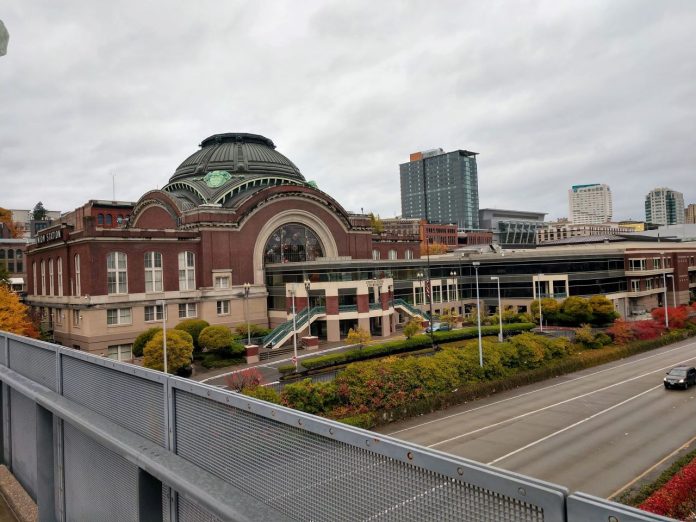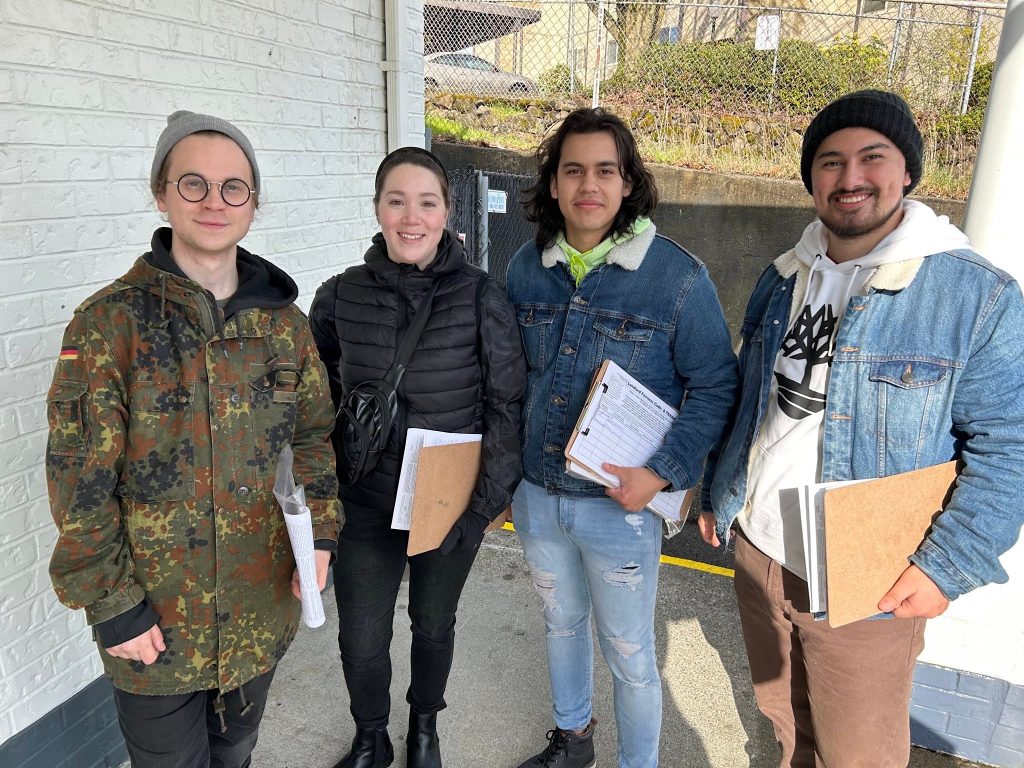
As of December 8th, tenants in Tacoma have more legal recourse against rent increases, landlord retaliation, high late fees, and even some evictions. Tacoma’s Measure No. 1, which passed by a narrow 370-vote margin in November, represents the strongest suite of tenant protections in the state, according to the Tenants Union of Washington.
Earlier this year, organizers with Tacoma for All gathered over 7,000 signatures to put the initiative on voters’ ballots, but as the slim margin might indicate, passage was far from guaranteed. Tacoma For All overcame substantial obstacles presented by the considerable campaign spending against the measure made by the Tacoma-Pierce County Chamber of Commerce and statewide realtor groups. By Election Day, opponents had spent more than $380,000 to defeat the measure, while supporters only had access to $130,000 in funds.
“We feel really proud of what we’ve achieved. It was a real David versus Goliath kind of fight,” Tacoma For All campaign manager Ty Moore told Northwest Public Broadcasting last month.
Key provisions of the initiative will:
- Require landlords to provide at least 180 days’ notice of any rent increases and send tenants a reminder a few months later;
- Prevent landlords from carrying out most winter evictions between November 1st and April 1st, and during the school year for families with students;
- Limit rental late fees to $10;
- Require landlords to provide tenants with relocation assistance when a rent increase exceeds 5%, equal to up to three months’ rent; and
- Impose penalties for noncompliance.
The citizen-led tenants rights measure goes much further than a proposal put forward by Tacoma City Council, which was originally slated to be on the ballot alongside Tacoma for All’s initiative. Council’s action, dubbed Measure No. 2, would only have required 120 days’ notice of rent increases, limited late fees to $75, and required landlords to comply with health and safety laws, alongside other miscellaneous provisions.
In a late August ruling on a lawsuit brought forward by Tacoma for All and United Food and Commercial Workers Local 367, Pierce County Superior Court Judge Timothy Ashcraft struck down Tacoma City Council’s competing Measure No. 2, saying that it did not act as a meaningful alternative proposal for voters. This is because, before council adopted Amended Resolution 41238 to send both measures to the ballot, they passed Amended Substitute Ordinance 28894 which enacted all of their own provisions outright.
This means that council’s tenant protections would have remained in effect even if neither measure passed on the November ballot. “[N]either the ballot title nor explanatory statements clearly explain that Measure 2 already is law and will remain law regardless of the vote,” wrote Judge Ashcraft.
While she declined to share how she voted on the measure, Tacoma Mayor Victoria Woodards struck a conciliatory tone in the aftermath of passage.
“I am generally supportive of the new protections on top of what we have already passed that will improve conditions for renters in Tacoma,” Woodards told The Urbanist in a written statement. “While we may disagree about how some of the protections could have been implemented, more protections for our renters helps us stabilize our community and address our growing affordable housing issues.”
Woodards also expressed appreciation for Tacoma for All and “their incredible dedication and tireless advocacy for our renters in bringing this forward.” The mayor’s office underscored a statement from the city manager; the measure “is now law, and that the City will abide by it and defend it if challenged.” The deep-pocketed opposition may be contemplating just such a legal challenge, but nothing has been announced thus far.
While it’s not yet clear what’s next for the Tacoma for All campaign (staff have not yet responded to requests for comment), the initiative’s success is already inspiring similar action around the state. Tenants Union of Washington’s interim executive director Terri Anderson shared that the organization has already reached out to incoming Spokane Mayor Lisa Brown and new City Councilmembers to discuss passing a similar suite of protections through councilmanic action. Organizers in Olympia are also looking to pursue similar action, Anderson said.

And if advocates in Tacoma wish to take further resident-led action related to tenants’ rights, they possess an advantage over other cities in the state. Where state law requires voters in most Washington cities to obtain valid signatures from 15% of a jurisdiction’s registered voters in order to bring an initiative to a vote, Tacoma’s charter grants that right with signatures from only 10% of the voters in the last mayoral election.
Since turnout in odd-year local elections is significantly lower than the number of registered voters, Tacoma residents looking to put something up to a vote of the people have an easier path forward than residents elsewhere. For example, where organizers in Renton needed to collect nearly 9,000 valid signatures to place a minimum wage initiative on the February 2024 ballot, Tacoma for All’s Measure No. 1 only required just over 4,200 signatures — despite Tacoma having twice as many people as Renton.
Mayor Woodards shared that the city council’s Community Vitality and Safety committee will be researching further tenant protections in 2024 that council previously directed staff to study. However, many of these proposals now appear to be precluded by Measure No. 1’s passage. Initiative organizers have previously criticized the city’s promises for more “research,” an approach that they see as not going far enough in protecting tenants.
No matter what action any city in Washington takes on tenant protections, all eyes will be on state-level rent stabilization as the next political battleground in landlord-tenant issues. Although Rep. Alex Ramel’s (D-Bellingham) House Bill 1389 to cap annual rent increases between 3% and 7% stalled in the House Rules Committee this year, it will be automatically reintroduced in next year’s short legislative session. Passing rent stabilization will be an uphill battle in a legislature dominated by landlords and their interests, but state action would be required to undo a prior state ban on rent control that also preempts stabilization and arguably even anti-rent gouging measures.
However, Tacoma for All’s success shows that there’s still ample political room at the municipal level to enact meaningful legislation, in spite of institutional inertia and asymmetrical finances. If advocates across the state have their way, “the City of Destiny” is likely just the start.
Chris Randels is the founder and director of Complete Streets Bellevue, an advocacy organization looking to make it easier for people to get around Bellevue without a car. Chris lived in the Lake Hills neighborhood for nearly a decade and cares about reducing emissions and improving safety in the Eastside's largest city.

